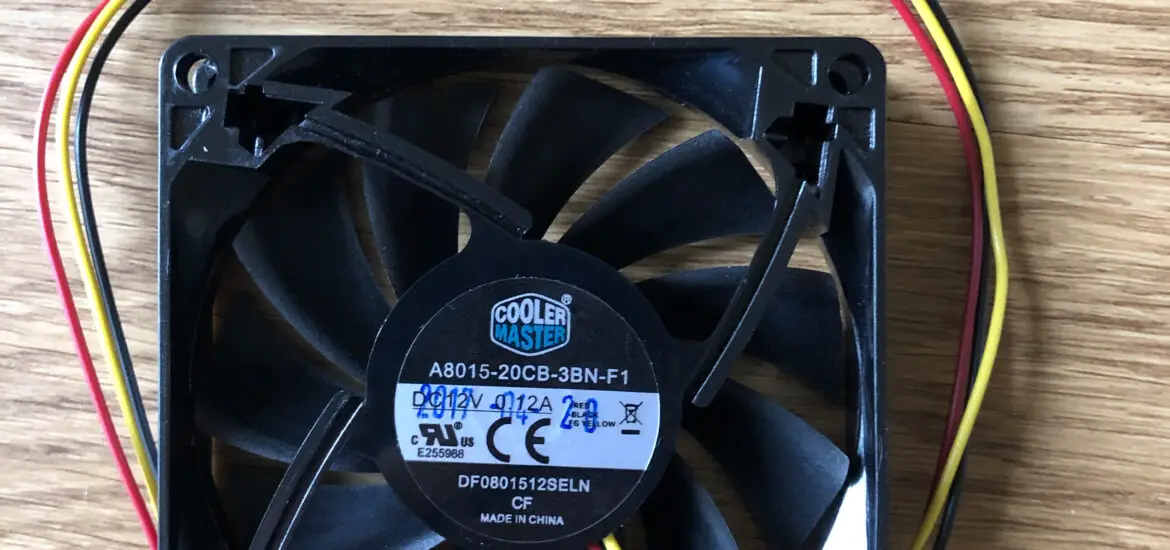What happens when refrigerator evaporator fan fails? You might not have given it much thought, but this tiny component plays a crucial role in keeping your fridge running smoothly. Let’s dive into its purpose, signs of failure, and what you can do to keep your fridge in tip-top shape.

Table of Contents
Purpose of the evaporator fan
The evaporator fan is the unsung hero of your refrigerator. Its main duties include:
Circulation of cold air
By circulating cold air throughout your fridge, it keeps your food fresh and prevents hot spots. Can you imagine life without it? Neither can we!
Maintaining consistent temperature
A well-functioning fan ensures a consistent temperature, which is essential for keeping your groceries at their best. In other words, it’s a lifesaver!
Signs of a failing evaporator fan
So, how do you know when your fan is on the fritz? Keep an eye out for these telltale signs:
Inconsistent cooling
Is your fridge playing hot and cold with your food? That could be a sign of a struggling fan.
Unusual noises
Grinding or squeaking noises coming from your fridge might mean your fan is about to call it quits.
Frost build-up
When your evaporator fan is in trouble, frost can start building up in your freezer. Brr!
Consequences of a Failing Evaporator Fan
Inefficient cooling
A failing fan can cause a whole host of problems, such as:
Warmer refrigerator temperature
When your fan isn’t working properly, your fridge might get too warm for comfort. Say goodbye to cold drinks!
Spoilage of food
As temperatures rise, your food might spoil faster. That’s just not cool!
Increased energy consumption
Did you know that a faulty fan can also put a strain on your wallet? Here’s how:
Overworking of the compressor
With no fan to help out, your compressor has to work overtime to keep things cool. Talk about a power struggle!
Higher electricity bills
As your compressor works harder, your electricity bills could soar. Nobody wants that, right?
Strain on other components
A bad fan can spell trouble for other parts of your fridge, too:
Compromised compressor
An overworked compressor can wear out faster, leading to costly repairs.
Damage to the condenser coil
With no fan to dissipate heat, your condenser coil could get damaged. Ouch!
Diagnosing a Failing Evaporator Fan
Visual inspection
Think your fan might be in trouble? Start with a visual inspection:
Frost build-up
If you notice frost accumulating in your freezer, it could be a sign that your evaporator fan isn’t working properly.
Physical damage
Check the fan for visible damage or debris that might be causing issues. Sometimes, the answer is right in front of you!
Noise detection
Listen carefully for any unusual sounds:
Grinding or squeaking sounds
These noises could be a cry for help from your evaporator fan. Don’t ignore them!
Irregular fan operation
If the fan is starting and stopping erratically, it might be time for a checkup.
Measuring electrical resistance
Grab your trusty multimeter to check the fan’s motor:
Multimeter testing
Testing the electrical resistance of the motor can help you determine if it’s the source of the problem.
Assessing motor continuity
If the motor shows no continuity, it’s likely that you’ll need a replacement.
To read more on evaporators and their role in refrigeration, click here: Evaporators in Refrigeration: Easy Guide to Understanding Your Fridge’s Unsung Hero
Repairing or Replacing a Failing Evaporator Fan
Repair options
Before you rush to replace your fan, consider these repair options:
Cleaning the fan and surrounding area
Simple cleaning might do the trick if your fan is just a little dirty or clogged.
Lubricating the motor
A little lubrication can help your fan motor run smoothly again. Give it a try!
Replacement process
If repairs don’t work, it’s time for a new fan. Here’s how to replace it:
Acquiring a compatible replacement
Make sure you get the right fan for your fridge model. A perfect match is essential!
Disconnecting power and removing old fan
Always remember to unplug your fridge before attempting any repairs. Safety first!
Installing the new evaporator fan
With the old fan out of the way, carefully install the new one and reconnect the power. Voila!
Preventative Measures
Regular maintenance
Prevention is better than cure. Adopt these maintenance habits:
Cleaning the refrigerator
Regular cleaning helps keep your fridge in good shape and prevents fan problems.
Inspecting fan and components
Regular inspections can help you catch potential issues before they become major headaches.
Proper refrigerator usage
Be kind to your fridge by using it correctly:
Avoiding overloading
Don’t stuff your fridge to the brim! Overloading can strain the evaporator fan and other components.
Ensuring proper door sealing
Make sure your fridge door seals tightly to prevent cold air from escaping and putting extra strain on the fan.
Conclusion
Importance of a functional evaporator fan
A well-functioning evaporator fan is the key to a happy, healthy fridge. Don’t take it for granted!
Recognizing and addressing fan issues promptly
Be proactive and address any fan issues as soon as you notice them. It can save you time, money, and a lot of hassle.
Adopting preventative measures for long-term efficiency
Regular maintenance and proper usage can go a long way in keeping your evaporator fan running smoothly. Treat your fridge with care, and it’ll thank you in return.
In conclusion, understanding what happens when a refrigerator evaporator fan fails is crucial to ensuring your fridge stays efficient and your food stays fresh. By staying vigilant and keeping up with maintenance, you can prevent costly repairs and enjoy a well-functioning refrigerator for years to come.